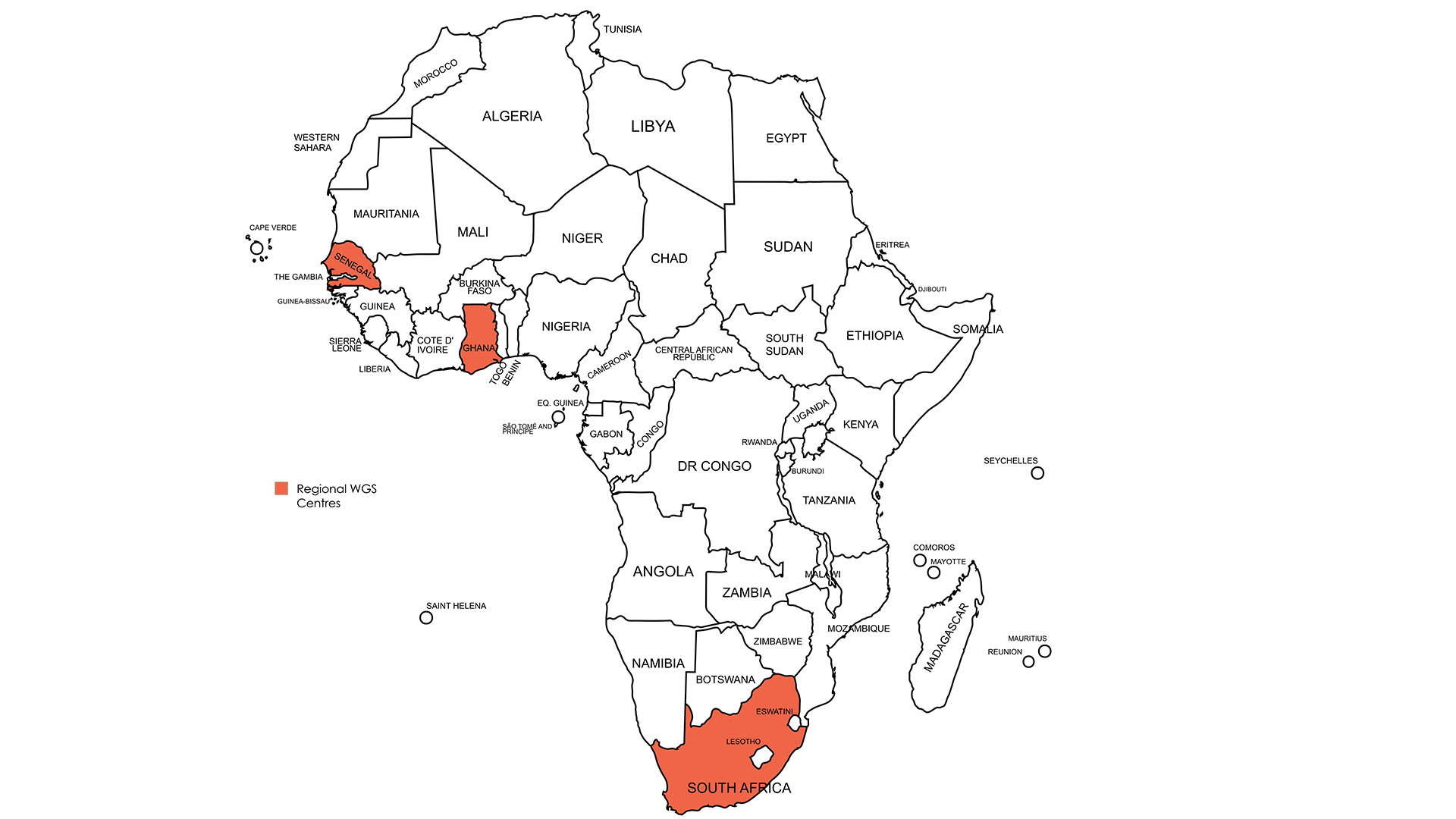Fleming Fund Regional Grant SeqAfrica
Extending whole genome capacity for AMR surveillance

SeqAfrica is a UK Fleming Fund regional grant project aimed at strengthening Whole Genome Sequencing (WGS) and bioinformatics capacity across Africa to enhance antimicrobial resistance (AMR) surveillance. Led by the Technical University of Denmark (DTU), with key partners including the National Institute for Communicable Diseases (NICD) in South Africa, the Noguchi Memorial Institute for Medical Research (NMIMR)in Ghana, and the Institut Pasteur de Dakar (IPD) in Senegal, the project supports three regional sequencing centers. These centers process bacterial isolates from across the continent, enabling outbreak investigations and tracking of resistance genes across human, animal, and environmental sectors under a One Health approach. SeqAfrica also provides technical assistance, training, and simulated exercises. The project aims to reduce reliance on external sequencing services, build local expertise, and foster sustainable genomic surveillance infrastructure in Africa.
A consortium of sequencing centres
The SeqAfrica Regional Sequencing Centres provide WGS and analysis services to surrounding countries in West, East and Southern Africa and support investigations of outbreaks, unusual resistance phenotypes, and/or delineation of the flow of organisms/genes across human, animal, agricultural and aquaculture sectors. SeqAfrica has established and currently supports a consortium of regional sequencing centers based in:
- Ghana (Noguchi Memorial Institute for Medical Research, NMIMR)
- Senegal (Institute Pasteur de Dakar, IPD)
- South Africa (National Institute for Communicable Diseases, NICD)- Center for Enteric Diseases (NICD-CED)
Submit your application for WGS services via this link. More information can be found under the Whole Genome Sequencing services page.
Strengthening capacity and sustainably
Capacity strengthening is central to SeqAfrica’s work and is critical to both the democratisation of sequencing and the long-term sustainability of the project’s activities. This goal entails building new capacity and expanding existing capacity through instrumentation, and providing in-depth training for equipment use and data analysis.
We achieve capacity strengthening through:
- Twinning exchange experiences for younger scientists who are part of the consortium
- Simulated exercises in genomic epidemiology
- Voluntary annual genomic proficiency testing
- A bioinformatics community of practice
- Ongoing technical support to Fleming Fund Country Grant laboratories
